Heard about Tomino’s Hell? It’s a poem from Japan with one rule: you’re better off reading in your head, not out loud. Trust me, it’s for the best. Before I get into my interpretation, along with my thoughts on the story, take a look if you dare! But remember, don’t read it out loud!
Tomino’s Hell
The elder sister vomits blood, younger sister’s breathing fire. While sweet little Tomino just spits up the jewels. All alone does Tomino go falling into that hell, a hell of utter darkness, without even flowers. Is Tomino’s big sister the one who whips him? The purpose of the scourging hangs dark in his mind. Lashing and thrashing him, ah! But never quite shattering. One sure path to Avici, the eternal hell. Into that blackest of hells guide him now, I pray to the golden sheep, to the nightingale. How much did he put in that leather pouch to prepare for his trek to the eternal hell? Spring is coming to the valley, to the wood, to the spiraling chasms of the blackest hell. The nightingale in her cage, the sheep aboard the wagon, and tears well up in the eyes of sweet little Tomino. Sing, o nightingale, in the vast, misty forest he screams he only misses his little sister. His wailing desperation echoes throughout hell—a fox peony opens its golden petals. Down past the seven mountains and seven rivers of hell the solitary journey of sweet little Tomino. If in this hell they are found, may they then come to me, please, those sharp spikes of punishment from Needle Mountain. Not just on some empty whim is flesh pierced with blood-red pins: they serve as hellish signposts for sweet little Tomino.
As a kid, I was always the eccentric one out of the bunch. The creative, introverted child with an uncanny obsession for horror. To me, horror meant—and still (as an adult) is—a somewhat unpleasant excitement of emotion. Not only that, but it also triggers a fear from within and brings curiosity out of me, which is why I am always eager to experience and search for more. That is to say, whatever would be considered ”too scary to handle” for someone else, whether that is being in the pitch-black dark, summoning an evil spirit like (bloody Mary) in the mirror, or talking to the dead people through a vintage, badly curved ouija board, I am the first to explore it.

A few weeks ago, I was lucky to stumble across a Japanese poem called “Tomino’s Hell” released in 1919 and recorded in the poetry collection Sakin. Rumor has it that if you read the poem out loud, you will either die or your soul will suffer eternally in hell. If you are wondering who was behind the creation of such a dark, witty, and eerie urban legend, his name was Saijō Yaso.
If you are not familiar, Saijō was a known Japanese poet who worked on children’s nursery rhymes and popular song lyrics. I wanted to do further research on the artist himself, but there was not much about him in English. I did come upon a possible inspiration behind the poem and the age he was when he created it. It is said that “Tomino’s Hell” was created when Saijō was 27 years old, and the inspiration came after experiencing a great loss of either his father or sister, nothing more than that. I was a bit confused about what I discovered about the poet, but, surprisingly, there is a vast amount of information about the cursed poem. Apparently, there have been multiple reported incidents regarding the poem, and one was the death of director Shūji Terayama.
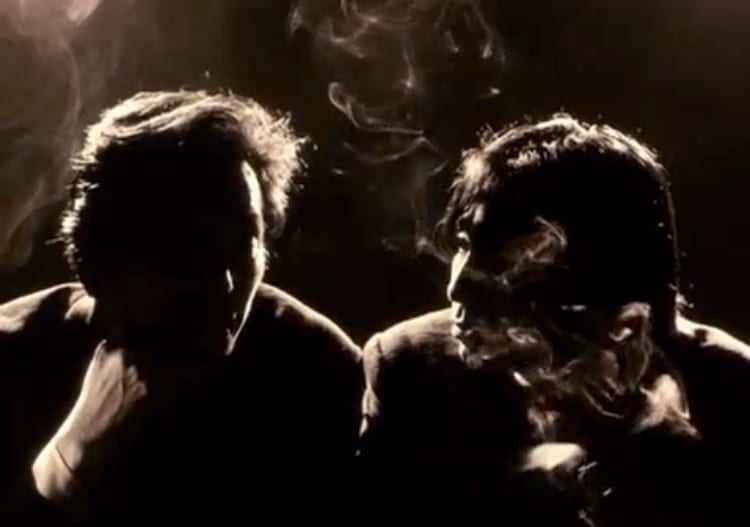
There was no secret that Shūji so highly admired “Tomino’s Hell” that he created a film inspired by it. The movie Den-en ni shisu (Pastoral: To Die in the Country, also known as Pastoral Hide and Seek) was released in 1974, and Terayama died a few years later at the age of 47 from cirrhosis of the liver. Strangely enough, some skeptics believe otherwise. They believed it was the poem that killed him. In another case, a female college student died a week after reading the poem out loud while participating in a daring prank. Other cases include illnesses, car wrecks, and the feeling of an evil presence lingering around.
The way I feel about the ”death rumors” regarding the poem is that I am a bit superstitious about it, but, in some way, but I beg to differ. I am a strong believer in the law of attraction: what we constantly think about will eventually manifest into our lives. Don’t you agree?—and if you’re asking what do I mean by that, in other words, if you truly believe that something will happen to you, then it will. We are all made of energy, the positive and the negative. Another scenario: if you think positively, your energy will attract good things to you, and if you think negatively then…you get my drift. But regardless of what I believe, I initiated a further review to see what was the mystery behind the meaning of the story.
As I was reading through the poem, my thoughts were that the composition style of the story was indecipherable but quite fascinating. The poem was originally written in Japanese, which (in my opinion) made the English translation difficult to understand. One thing that I did notice repeatedly throughout the entire poem is it only mentioned his two sisters. Nothing pointed towards Saijō’s father. So, there could be a possibility that the inspiration behind the poem is referring to his sister, but it is still unclear whether it is regarding the elder or younger sister.
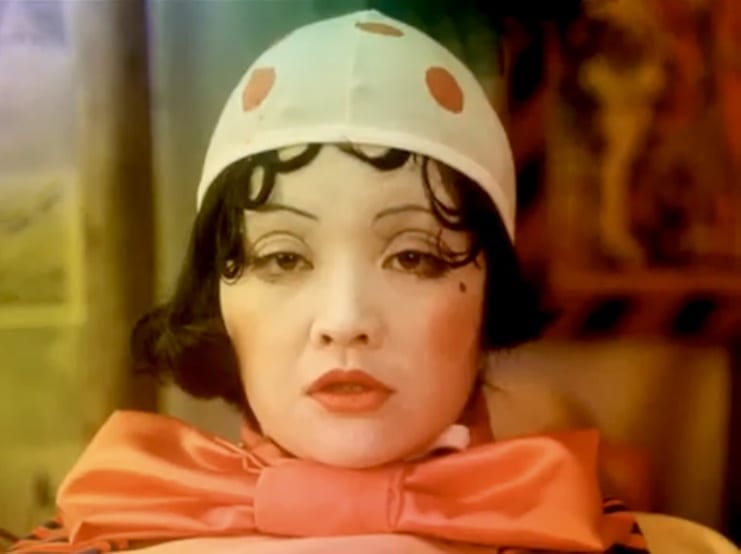
I wonder, could “Tomino’s Hell” be about Saijō’s secret childhood that is unknown to the public? The meaning behind the story is still a mystery. It also had occurred to me that there could be an open interpretation of whatever you think the story is about to you. While some readers interpret the poem to be a metaphor for war, and so on, I view it in another way by thinking outside of the box.
As complicated as the poem may seem, my easy way of coming up with an interpretation is that I analyzed the story metaphorically. My interpretation may not be exactly what the story is about, but it is just my way of being imaginative, which I feel what makes the poem even more intriguing. At the beginning of the story, it was obvious who was all involved, but no names were attached other than Tomino.
Elder sister vomits blood,
younger sister’s breathing fire
while sweet little Tomino
just spits up the jewels.
Figuratively speaking, what it means to “vomit blood” is to be frustrated and stressed about a particular situation. To “breathe fire,” or what I’ve imagined it to be, is a person who is holding back and keeping things unspoken. “While Tomino spits up the jewels”: I’d say he is keeping a secret about something or someone—and the short phrase (jewels) could be referring to “family jewels.”
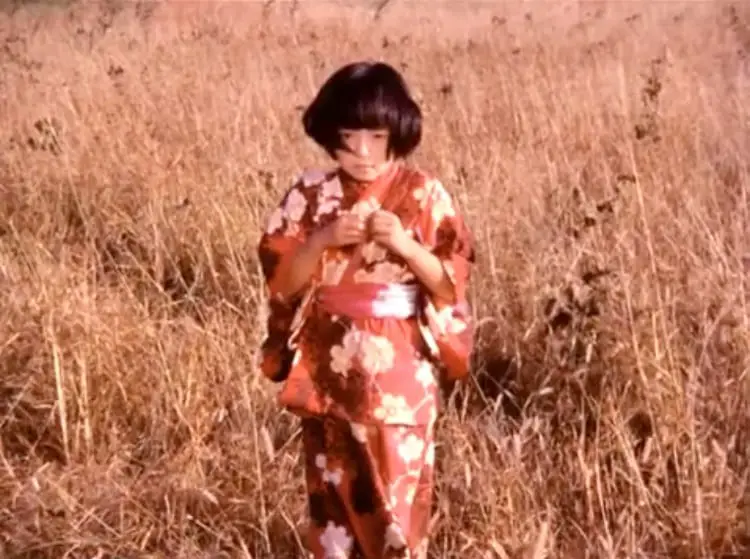
After breaking down the beginning of the story, I believed that his elder sister was frustrated about a situation pertaining to her younger brother, Tomino. While her younger sister, on the other hand, could possibly be the ”family member” who is involved or is aware of Tomino’s secret.
Tomino is feeling all alone in the situation. He can’t speak of it to anyone because he is fearful that while having these sinful thoughts about someone in the family, his punishment would be that his soul will suffer eternally in hell where he’d never see broad light and the flowers bloom again.
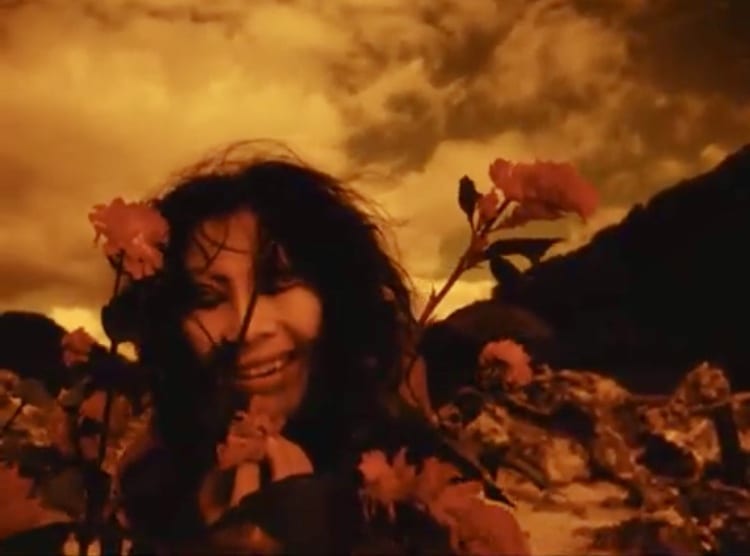
Which now I suspect that Tomino is fearing these sinful thoughts about his elder sister. “Is Tomino’s big sister the one who whips him?” That is where I question, could his elder sister be abusive towards him and the younger sister?
Lashing and thrashing him, ah! But never quite shattering. One sure path to Avici, the eternal hell. Into that blackest of hells guide him now, I pray—to the golden sheep, to the nightingale.
It seems that Tomino is reliving a moment where his elder sister became angry at him or possibly towards both his sister and himself. The word shattering means very shocking or upsetting—but while it mentioned “never quite shattering,” I feel that the situation with his elder sister was not a surprising one, that it had become a constant situation between the two. In Buddhism, Avici means the lowest level of the Naraka or “hell” realm. So, it tells me that Tomino could have entered into a deep dark depression, praying that he heals the pain that lies beneath his mind.
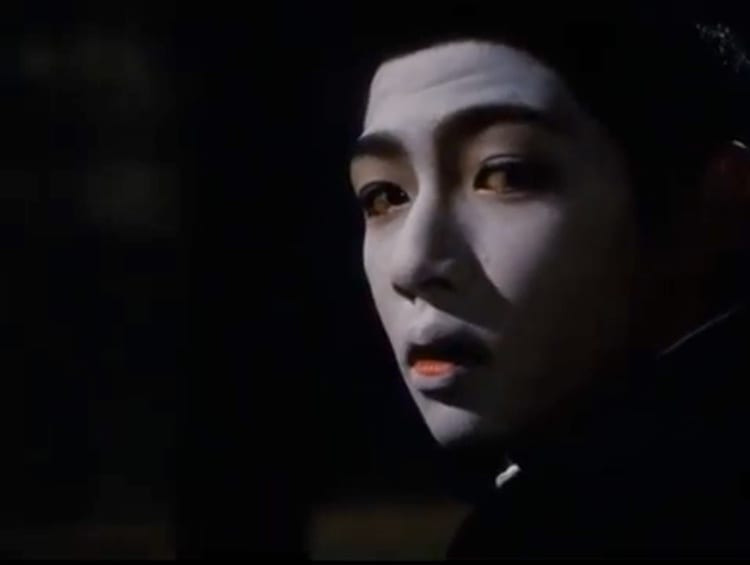
The poem is a metaphor for his painful thoughts. Tomino travels through the different dimensions of hell in the misty forest as the sheep carry the wagon. The caged nightingale sings along the way while he nervously awaits upon his arrival. He screams out in desperation, sounds of wailing, and echoes throughout the forest for his younger sister.
When he arrives at the “golden petal,” which could be referring to the gates of hell, Tomino sees a spirit animal or what I call “spirit guide,” who guides him to see the light at the end of the tunnel (an end of a difficult situation). Yet he goes further deep through the mountains (depression) and into the darkness of hell, alone. Then the confusion came in towards the ending, which led me to put the whole story together to get a potential outcome.
A possible conclusion: I think the poem was written in a metaphorical sense. It’s like stepping in the mind of a person who is being paranoid and delusional. Maybe it could be referring to a young boy (Tomino) who is experiencing some kind of mental illness such as schizophrenia (when a person interprets reality abnormally and may result in some combination of hallucinations or delusions), a definition which I think complements the story very well.
It was also obvious that the love and bond he had shared with his younger sister was stronger than the bond with the eldest, which brought to my attention that maybe he didn’t have a great relationship with her at all. I did sense that there was some kind of abandonment, and without the story mentioning anything about Tomino’s parents or anyone else besides his two sisters, I feel that the elder sister was in charge of watching over Tomino and the younger sister.
Throughout the poem, it talked about punishment. His elder sister could have also been very abusive to both of them and, because of that, the anger that Tomino felt against her was unbearable. He feared that if he had sinful thoughts and feelings against his elder sister that his soul will burn eternally in hell. It was not stated if Tomino was religious, but there were a few sentences that spoke of Buddhism.
I read that Buddhists believe that suffering is part of life that is to be expected and that if a person experiences pain calmly, without becoming emotionally distressed, he can attain greater states of being. In this case, I feel that it was difficult for Tomino to do that. Maybe he was aware of being on a spiritual journey, going through lessons, and trying to find his way to surrender the pain and guilt that he felt regarding the situation with his elder sister.
Either way, the logic behind the story is still unknown, and after discovering more interpretations swarming around the internet of “Tomino’s Hell,” I can ironically say that my thoughts are mutual.




i just read it out loud;-;♥️
I’m going to read it now. 7 March 2023
my friend read it out loud It’s been a few months, and its a lie because he still hasn’t died. Yet.
I read it out loud. Nothing happened that day, or for the rest of the week. But the next week, I started feeling more and more tired to the point where I fell asleep in class and didn’t wake up until the end. I had been losing sleep because of weird dreams I had been having. I was in a long, white corridor, I couldn’t see either end of the corridor. The creepy lady from the curse was Infront of me with her hand outstretched. I couldn’t move, I couldn’t even close my eyes or turn my head. After a few minutes of staring at each other, My hand began to inch closer to hers, our fingers eventually touched and she screamed very loudly. I woke up immediately with the scream still ringing in my ears. I looked down at the hand she had touched and I had a big red mark where she had touched.
You just assumed worse about it that why you had that dream, everything starting mentally …….. l didn’t think worst of it and nothing ever happened to me. So don’t assumed worst on stuff mentally because they always appeared physically in the end .
Ayo, I just read it out loud
Bro nothing happened to me I read it in my karoke mic 7 days/1week ago. All of this is just a myth. And even if this is real then neither did I die nor something bad happened to me or in my surroundings. If it has happened to someone i.e someone died after reading this poem out loud the happy death day to you.
Bro guys I read it and now I’m experiencing some weird shit idk if it’s a coincidence or something but my head feels too heavy for my neck and it hurts really bad, I’m dizzy and my vision is slightly distorted, and when I went to pull my laundry into the laundry room it suddenly got really heavy- whats freaking me out is that none of this was happening until shortly after I read the poem
I poem as loud 📢🔊
I disagree with your take on the poem. You are neglecting family jewels can be gender and he is the preferred gender of his country. Perhaps his father preferred him and a sister died somehow due to this preference.
To breathe fire is often to be angry, or to have tuberculosis or the like.
@bloom if you read the article carefully I did state that it’s an opinion. Which I have every right to have one and go with it. Just like you have your own opinion on what it might mean to you, I can too. It wasn’t meant for anyone to agree or disagree with it.You do believe that we are all entitled to have an opinion, right? Tbh, I’m not sure what it actually means. Especially since it’s written in Japanese and translated poorly in English. I could be wrong but that is my interpretation of what it may mean TO ME and I’m keeping that. Sorry
I also want to highlight what I wrote in the article if you missed it, “ My interpretation may not be exactly what the story is about, but it is just my way of being imaginative, which I feel what makes the poem even more intriguing.”
um nothing happened
My heart was beating very fast I didn’t even read it out loud
Yayyy i am alive
I am going to read this poem loudly and if i don’t reply then that means I am dead I read it at 16/08/2023
I just read it
I read this poem loud. If I will not reply after 1month that means I died.
Hay ..I am read it loud at 12 am at night on 5 August 2023… lete see what happens with me…….
It was nothing I reader the poem and still alive
I said it 15 July, Saturday 2023 at 4:21 pm
I read it out loud
Hey that’s really true as I am a girl I read it loud and terrible thing is happening in my House 😭😭😭 do you know how to get out from this curse
I wouldn’t take things like this so heartless..you never know what it meant by you’re soul damned in hell..it didn’t recall dying altogether. 🙂
Very beautiful, might present it to my literature group at our next meeting.
Gonna read it out loud aint gonna kill no one
I read that poem loud